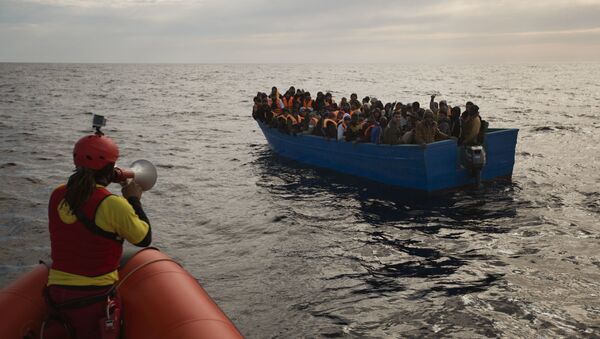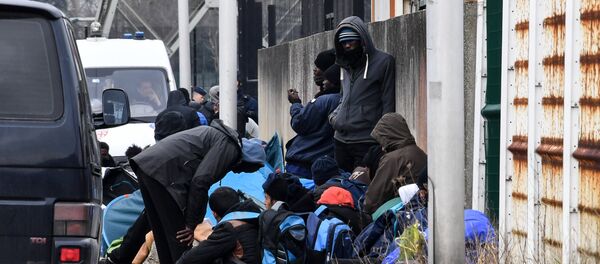Those European Union member states that refuse to take in refugees should have an opportunity to apply "alternative measures of solidarity" by either paying into the EU budget or toward development projects in Africa, a document submitted by France and Germany to EU interior ministers in Brussels reads, according to Reuters.
In a bid to put an end to intra-EU clashes over migration, Berlin and Paris proposed on Thursday an amended version of a migration management mechanism, which deals which some migrant related issues.
The Franco-German initiative also proposes elaborating specific rules on how to deal with migrants, who arrived in the EU after being rescued at sea.
The "alternative measures of solidarity" that could be imposed upon member states in the event they refuse to provide asylum seek to end the divisions between the West and East in the bloc as the former have been willing to take in refugees while the latter have rejected giving shelter to migrants.
READ MORE: Europe Split Over UN Global Compact for Migration — Politicians
The document also warns that the EU would need to create a mechanism to avoid a situation, when all European Union states prefer to pay instead of taking in refugees. No specific details regarding such a mechanism have been provided.
In 2015-2016 the EU experienced a huge influx of migrants and refugees. In 2015 more than one million migrants arrived in Europe, of which 250, 000 people came by sea. The main migrant entry-points into the EU were in southern and eastern EU member states, such as Italy, Greece, Spain, etc.
READ MORE: Mass Migration Planted 'Bomb' Under EU – Belgian Politician
EU authorities, in an attempt to deal with the burden the migration caused, established a quota system, according to which all EU states have to share responsibility for hosting migrants. While the bloc's western states, such as Germany, were willing to give shelter to refugees, eastern countries, such as Hungary and Poland strongly opposed the decision.
The UN is set to hold a conference on migrants on 10-11 December 2018, where the participant states are expected to sign The UN Global Compact for Safe, Orderly and Regular Migration. The Compact has caused a controversy among EU states, leading some of them to reject it.
READ MORE: Red Cross Offers to Use Humanitarian Law to Tackle EU Migration Issue
So far the US, Austria, the Czech Republic, Hungary, Poland, Slovakia, Bulgaria, and Lithuania have rejected the UN Compact. In November Italian Deputy Premier Matteo Salvini announced that Italy would not take part in the upcoming conference, however, noting that "the floor of parliament must debate it. The Italian government will allow parliament to decide".



